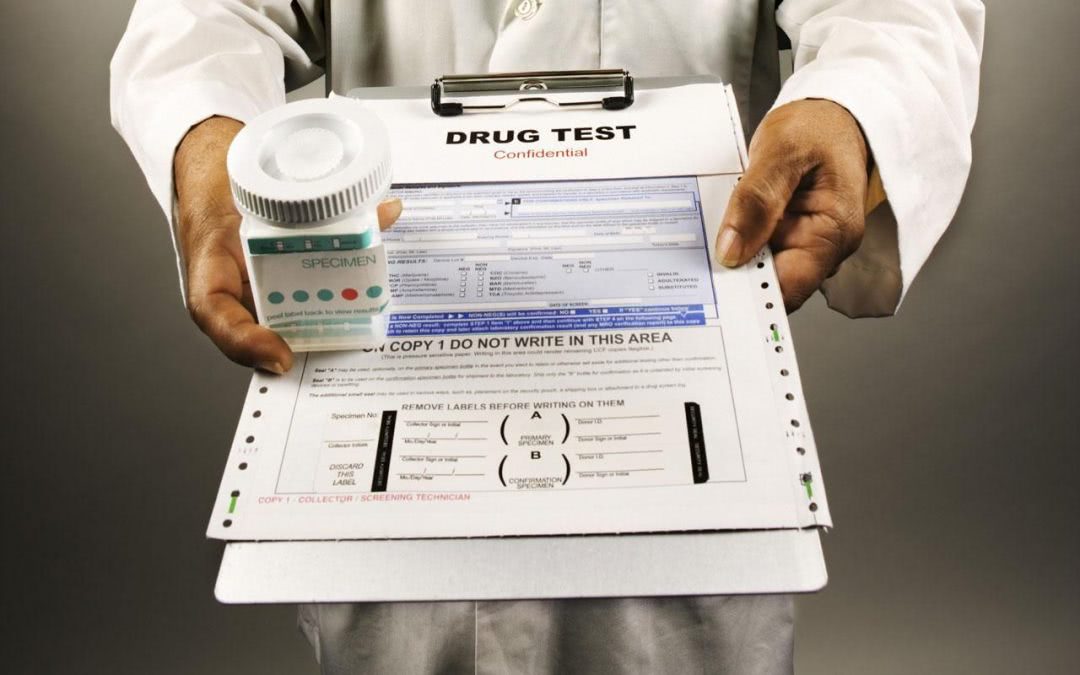High Schools Should Have Mandatory Drug Testing for Participation in Extracurricular Activities

CON (6 arguments)
Refutations:
1. If they say: "The Supreme Court rules that drug testing is legal"
Then say: Well, just because the Supreme Court says its legal doesn't necessarily make it the right choice. The Supreme Court decides whether something is legal or not, not whether or not it will fix our drug problem in America.
2. If they say: "It has a deterrent effect"
Then say: But people can cheat the system with blood cleaners, and the drugs wear off after a few hours after taking them, so people could easily evade the system.
POIs:
1. What is the accuracy rate of drug tests?
2. How do the tests work?
3. According to these drug tests, what percent of American teens do, in fact, take drugs?
Studies and surveys have proved that drug tests constantly cause an increase in usage.
83 high school where observed in a study.
Results:
- 85% of the high school principals reported an increase in either drug usage or alcohol usage among their students after the drug testing program was stopped, compared to the 1999-00 school year (when they had a drug testing plan implemented).
- 80% reported an increase in illicit drug usage during the 2000-01 school year compared to the previous year.
- 59% reported an increase in alcohol usage during the 2000-01 school year compared to the previous year.
- 83% reported their answers concerning the increase in drug and alcohol usage was based on
information received directly from students. - 79% said their answers were based on information from teachers and staff.
- 59% said information came from law enforcement.
- 23% said information came from formal surveys of students at the school.
- 78% of the principals reported that there was an increase (compared to the 1999-00 year) in the number of students who came forward and told them that drug and alcohol usage was on the rise since the drug-testing program was stopped.
The tests currently used test a biological specimen, usually urine. However, certain drugs only stay in a person’s system for a few hours and there are many substances that can remove the drug remains from urine.
According to the students at rural Rushville Consolidated High School, there are a dozen ways to pass a drug test. You can march down to the local video store and buy a packet of "Karma" urine-cleansing powder. You can toss salt in your urine sample or drop in a strand of hair coated with hairspray. More often than not, it's simply a matter of choosing the right kinds of drugs, say the teens -- Ecstasy and alcohol disappear from your system within hours; marijuana can take up to 30 days.
The drug testing vans roll up to the Rushville campus every few weeks, and 25 students are randomly asked to produce a urine sample; yet hardly anybody is ever caught with drugs in their system. And it's not because they aren't doing drugs.
"I'd guess 75 percent of my class has tried marijuana," senior Adam Sadler says, "A lot of kids do drugs at this school; though it kind of depends on who you are," one says. "The thing is to just make sure you pass the tests."
For six years, Rushville Consolidated has required random drug tests from between 75 to 90 percent of its 900 or so students, including anyone who participates in extracurricular activities or plays sports. If they get caught with drugs, alcohol or tobacco in their systems, they are denied participation in these activities until they can prove they're clean.
Why drug tests flunk; by Janelle Brown
Even if in certain districts there is a decrease in drug use, the actual impact of the programs are negative when the result is compared to the cost of the program. Virtually speaking, this program has a goal that could be beneficial, but in reality, there is no substantial impact, no substantial decrease of drug use and in most districts using this program, the usage amount either remains the same or increases.
Students should not be forced to undergo drug testing to participate in sport or other activities. Students are claiming that this takes away their civil liberties and privacy all together. School administrators fear legal ramifications of even attempting to implement a random drug testing policy. The fact is its not fair, and completely unconstitutional. Such a policy should not a mandatory.
The Supreme Court has ruled that drug testing is legal, but only if the student is under suspicion. Otherwise, it is a violation of his/her rights.
Drug testing is extremely expensive and not affordable in the governments current position. There is already a huge amount of budget cuts on schools and if the government or the school has to pay for these drug tests, the budget for high schools to spend on educational matters will lower.
A single standard drug test to detect marijuana, tobacco, cocaine, heroin, opiates, amphetamines, barbiturates, and tranquilizers can range from $14 to $30 per test, while a test for steroid costs $100 per test. This amount of money should not be spent for such a cause that has major negative or useless effects.
Relationship Between Students Illicit Drug Use and School Drug-Testing Policies, Lloyd D. Johnston, Patrick M. O’Malley
Just because the point of the policy is to lower drug use doesn’t mean that there will be no negative effects, and one of them will be the lack of participation. The policy has been tested a multitude of times and one of them will be the lack of participation. The policy has been tested a multitude of times and has proven to lower participation rate in activities.